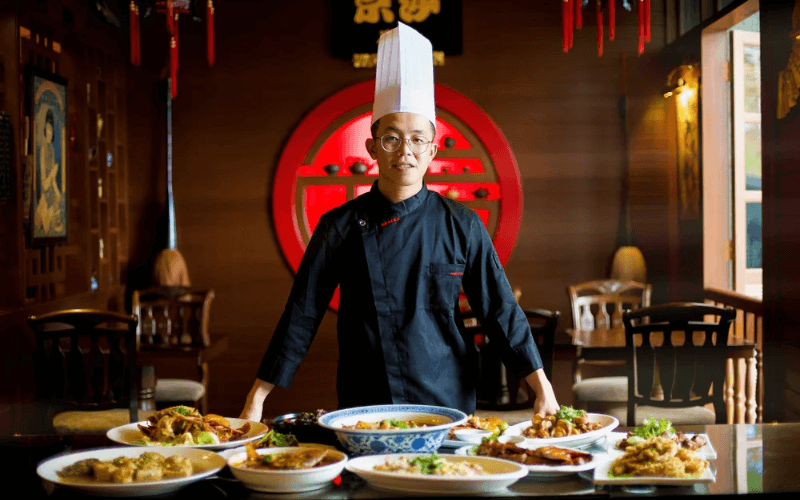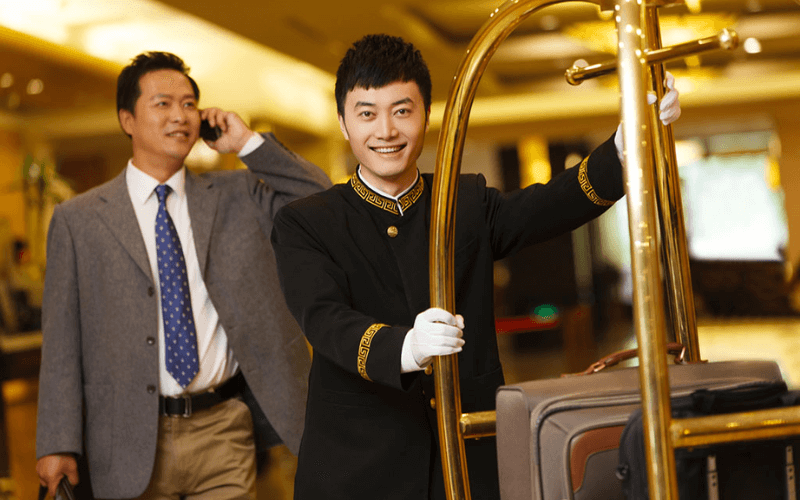No Asian nation has a long
tradition of tipping, but the growth of western tourism has altered tipping
culture in some, but not all, of the region's nations.
What might be seen as a
generous gesture in one nation might be perceived as an insult in another. Even
though you may believe that leaving a large tip is helping, it's possible that
you're hurting people’s feelings.
The guidelines for tipping
vary depending on the nation you are visiting and the potential tipping
circumstances you may encounter when traveling in Eastern and Southeast Asia.
As diverse as the
civilizations that make up this region of the world are, so too are attitudes
and expectations around tipping.
Asian
countries where you shouldn’t tip
Although most of us are
accustomed to tipping, when traveling abroad, it can cause some visitors to
hastily research the acceptable methods of tipping culture in specific nations.
Is tipping, ok? How much do
you tip? Do cab drivers anticipate it? How about the maids?

Before you go, it's important
to learn about the culture of tipping in the destination country.
Because providing excellent
service is an expected aspect of the job in several Asian nations, leaving a
tip is frowned upon.
Japan
Tipping in cash or via a tipping
platform is not a frequent habit in Japan and may even be seen as
disrespectful, rude, or even strange.
The Japanese culture values
pride in one's job. As a result, when providing a service, employees hold
themselves to the highest standards and don't require tips to make them feel
appreciated.
The Japanese view attempts
at tipping as a sign that their company doesn't esteem them highly enough to
pay them sufficiently.
In Japanese culture,
excellence in hospitality and service is highly valued. The basic philosophy is
that the wait staff functions as a team for the restaurant, and if a customer
appreciates their experience, they will come back again, recommend the
restaurant to others, and bring in more business without the need for
additional financial rewards.
Related: Top Restaurants in Tokyo, Japan
South Korea
Similar to Japan, tipping in
South Korea can be considered as being disrespectful or rude in most
circumstances and as an attempt to establish a hierarchy among people, which is
contrary to the culture of the nation.
The idea is based on the equality
principle, according to which everyone should be treated equally and receive
the same degree of service without receiving any financial benefits.
With one notable exception,
however, and even then, it's important to note, some luxury restaurants that
cater to tourists from other countries may accept tips in cash or via a tipping
platform.
China
Tipping is typically frowned
upon in China, much like it is in Japan and South Korea. In fact, tipping might
make a person "lose face."
In Chinese culture, the idea
of "saving face" refers to the sensation of embarrassment or loss of
social standing resulting from a perceived failure or error. Therefore, leaving
a tip can be interpreted as a sign that the service provider is in need of assistance.
However, there are a few instances in China where tipping is
probably expected:
- Tour guides and
drivers: according to tipping culture in China, it is customary to tip both
your tour guide and your driver while traveling.
- High-end Chinese
eateries: Tips are accepted in high-end Chinese restaurants in major cities.
However, it's crucial to thoroughly review your receipt because sometimes a
gratuity has already been included.
When
to tip in Asia
When you arrive, spending
just twenty minutes learning about the regional tipping customs and free tip
apps you can use could pay off handsomely and spare many embarrassed faces.
Here are a few
service-related topics to look into in order to know how much to tip while on
vacation or an international business trip.
Hotels
Although some may still
object, tipping the person who carries your luggage is typically permitted at
most hotels in Asia. In other nations, leaving something for the housekeeper as
well as other service personnel is expected.
Tipping is not expected in
hotels in China. However, at certain more upscale hotels, you could tip the
bellhops for carrying your bags.
An acceptable gratuity in
Hong Kong is between 4 and 16 Hong Kong dollars. However, check to discover
whether there is a service charge on your hotel bill.
In Japan, leaving a gratuity
at a hotel is not customary, and if you do, it could not be accepted.
Tipping is not customary in
Thailand, although you can give the bellhop 20–50 baht for bringing your
baggage.
Tipping is not common in
Indonesia because hotels normally charge 11% for service. You can leave a
little gratuity for the porter if you'd want to thank them for carrying your
bags.

Although tips are not
expected in Malaysia, you should pay the porters who handle your bags 1-2 ringgit.
If you'd like, you can also leave the housekeeping a small sum each night.
Only bellhops in Singapore
require a gratuity, which should be between one and two Singapore dollars each
bag.
Luxury hotels in the
Philippines will request tips from patrons for bellhops, housekeepers, and
service personnel. However, there are fewer in smaller hotels.
Restaurants
Always check your bills to
determine if a service charge was imposed when eating out in Asia. If so,
tipping won't be asked of you.
Most restaurants in China
don't accept tips, however premium establishments that may add a service charge
of 10-15% are starting to accept them more frequently.
It is customary to leave
some change on the table or round up your payment by credit card to the next
dollar in Hong Kong because a service charge of between 10 and 15 percent is
usually added to the total.
If you try to tip in a
restaurant in Japan, your server might go looking for you and try to give you
your money back. In South Korea, tips for western-style restaurants range from
5 to 10 percent.
Small restaurants in
Thailand allow you to leave your change as a tip, however this is not typically
accepted. If there is no service charge on the bill, tips of at least 10% will
be required at upmarket restaurants.
In Indonesia, a 10% service
fee will likely be added to your bill. If you'd like, you can increase the
charge by an additional 5–10%.
In Malaysia, tips are not
customarily requested at restaurants, though occasionally a 10% service charge
would be added to the tab.
You should be aware that
there will likely be a 10% service charge added to the bill in Singapore, so
plan accordingly. Singaporeans don't tip, but visitors are expected to.
Before leaving a tip, double-check the final amount of your bill
in the Philippines as there may be a service charge. If there isn't a fee, you
can leave a 10% tip for the server; just make sure they get it.
Services
for Taxis and Rides
A sizable tip for your taxi
driver is not expected in the majority of Asian nations. In most cases, you can
instruct them to keep the change and round the fare up to the nearest amount.

If you try to tip a taxi
driver in China, they might not accept it.
Taxi drivers in Hong Kong
will typically round up to the nearest dollar amount rather than providing
change. You are not required to tip your taxi in Japan.
In South Korea, you can
advise the driver to retain the change but you don't have to tip them. Anything
extra could make your driver confused.
Taxi drivers in Thailand do not
anticipate tips, rather they will round up the fare to the next multiple of 10.
You can round up the cost of
transportation in Indonesia to the nearest amount.
In Malaysia, tipping your
cab driver is not customary, but if you hire one for a few days, you should tip
25–50 ringgit daily.
Tipping is not customary in Singapore, but for convenience, your
driver may round up the fare to the next dollar amount.
In the Philippines, drivers
frequently round up fares to the nearest multiple of five. If they use the
meter rather than quoting a price, you can leave a small tip in appreciation
for their honesty.
Tours
Asia's tourism service
providers are most likely to be accustomed to accepting tips. Most tour guides
will welcome the gesture, while others may formally decline.
Independent drivers and
guides in China anticipate a modest tip at the conclusion of your tour.
Your tour guide is willing
to accept tips in Japan, but they are not required or expected.
Tour guides in South Korea
won't expect tips, however if you'd like to, 5–10% of the tour price is okay.
For each day of the
excursion, you should provide your guide in Thailand between 300 and 600 baht.
In Indonesia, you are not
required to tip your tour guide, although you are welcome to do so if you had a
good experience.
Salons
and spas
In the majority of spas and
salons in Asia, tips are not customary. Tipping customs will be different if
you're visiting a nation like Thailand, where massage and other wellness
services are quite prevalent in both the culture and the travel and tourism
sector.
According to tipping culture
in China, there is no tipping at spas or hair salons. At a spa or hair salon,
no tips are expected in Hong Kong.
In Japan, leaving a tip at a
spa or hair salon is not required, and if you do, whether in cash or using a free
tip app, it will likely be declined.
Tipping is not expected at
spas or salons in Malaysia. There is no requirement to tip at a spa or hair
salon in Singapore.
In the Philippines, tipping
is not customary at spas, however if your experience was good, you are welcome
to leave an extra 10% in cash or via a tipping platform. Hairdressers won't be
expecting tips, but if you're happy with the service, you can leave them a
10-15% tip.
Read More: How to Tip in Iran
Conclusion
The majority of us are used
to tipping 15% to 20% extra on just about every service bill we get. Tipping is
recommended in many situations, whether it's a taxi, restaurant, or salon.
Depending on the establishment, some waiters or drivers won't even hesitate to
tell you that you owe them more money.
However, not all places on
Earth view adding gratuities in the same way. Every country has its own tipping
culture.
It can be challenging to
determine where, when, and how much to tip when traveling due to the wide range
of situations. The easiest way to be sure you are adhering to local customs is
to do a little research beforehand.
Consult a travel guide to
the area before you leave to learn about tipping customs. Asking a hotel's
front desk staff member or concierge is your next best option if you forgot.
They can advise you on
appropriate tipping customs and introduce a free tip app you can use.
If you decide to tip, Tipsy
is a great tipping platform which allows you to show your appreciation and make
someone’s day.